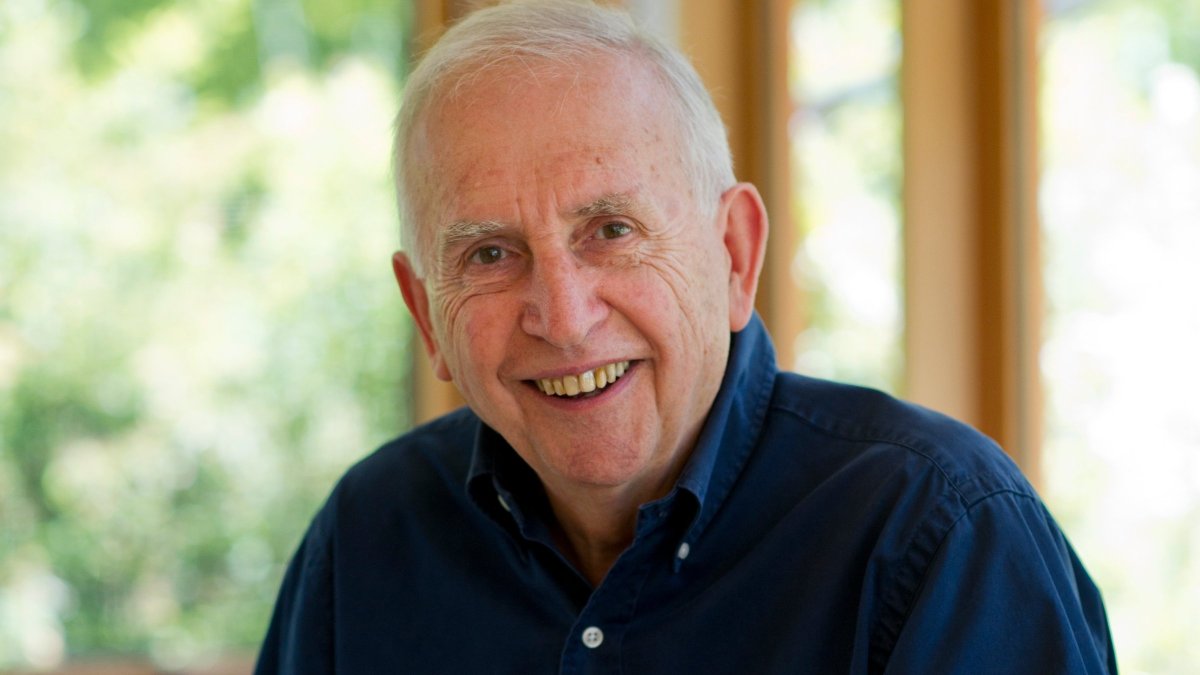In Conversation with Hugh Mackay Part One

We were lucky enough to take some time to sit down with Hugh Mackay, social psychologist, author, and social researcher of over 60 years, to discuss kindness in our world today.
What is kindness?
Kindness to me is the most remarkable form of human love, in a way the purest form of human love.
Romantic love is exciting and familial love is remarkable, it keeps families together, and companionate love, the love of friends, we couldn’t live without, it’s fundamental to emotional and mental health. But then there's this other kind of love, which is a purer form of love which doesn’t rely on our emotional state at all.
Kindness has nothing to do with affection. We can be kind to people we don’t like. We can be kind to people we would never agree with. We can be kind to total strangers.
It’s the remarkable human capacity to respond to other peoples’ need, to respond in particular to peoples’ need not just for help in an emergency but their need to be taken seriously, to be listened to, to be acknowledged and appreciated.
Why do we need kindness?
One of the things we need to remind ourselves about is that we humans belong to a social species. We are hopeless in isolation, we need each other. We need families, neighbourhoods, groups, communities, workplaces, gatherings of all kinds in order to nurture us and sustain us and to give us that all important sense of belonging which is fundamental to our mental and emotional health.
Kindness is like the lubricant that makes that machine of connection and engagement and community actually work. Kindness is the capacity we have to interact with each other in a harmonious way. If we couldn’t create harmonious human communities, then as a species we would simply die out.
Is kindness learned or innate?
One of the intriguing things about us humans is although we all have the innate capacity for kindness, it’s like our default position, other things do get in the way. We get distracted, all kinds of things occupy our attention, and we sometimes neglect this capacity we have. But give us an emergency, life threatening illness, relationship breakdown, retrenchment or on a societal scale a bushfire, flood, war or pandemic and watch us revert to our natural state which is to be kind, compassionate, caring and respectful of each other’s needs.
It’s a remarkable and wonderful thing about humans that when there is a crisis, when we are facing a disruption or a catastrophe of some kind, there is never any doubt about how we should behave, we just naturally respond to our common humanity. We lose sight temporarily of how we are different and focus on all the ways that we are the same.
What are the barriers to kindness and how do we overcome them?
There is no doubt that we are sometimes restrained or inhibited from being kind, and it sounds a bit unkind to say this, but usually our hesitation is based on our own ego. We are concerned about looking ridiculous or having a kind overture rebuffed or perhaps even someone being offended by our offer of help or by saying g’day when they just want to be left in peace. It’s an ego concern the same as our ego can inhibit kindness when we are driven by competitive impulses or by ruthless ambition or the desire to acquire something at the expense of other people.
We are not always kind just because we have the capacity for kindness, but I think the discipline is to remind ourselves that we are fully functioning, flourishing, fully-realised human beings when we are behaving kindly. When we pull back from that standard and when we allow our nervousness about how our kindness will be received, or some other self-absorbed concern to get in the way, we are actually diminishing our own humanity.
We just need to remind ourselves that occasionally we will make an offer of kindness, perform a kind act or even a kind gesture and it won’t be well-received or appear to be received at all. It doesn’t matter, we have still done something which has the potential to make the world a better place.
That is the important reminder, we are not looking for a response, we are not looking for a reward, we are not expecting that other people will be kind to us because we have been kind to them. We are being kind because that is the way we have realised it’s best for humans to be. We’re here to make the world a better place and this is the easiest way we can do it.
Want to know more about kindness?
We have commissioned McCrindle to create a report on the current state of kindness in Australia and give us a score that we’re calling The Kindness Index. You can enter your details below to get access to the full report, or we’ve together a Kindness Hub with all the info you need and we’ve collected some community stories and how-to guides in our Kindness Chronicles.
